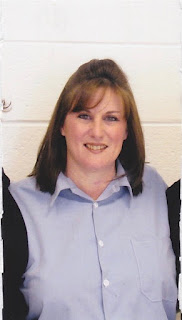By Lauren O’Dell
You might think a prison built specifically to house women would be the last place to find sex-based discrimination. Here in Virginia, sex discrimination in prison is disgustingly wide open and rampant. It’s 2018, supposedly the Year of the Woman, yet many in the public don’t realize how different women in prison are treated simply because of their sex. And truthfully, we are convicted criminals, so I somewhat understand why many wouldn’t care about this level of sex discrimination. But consider that for any reason, someone in your family could find herself in an unforeseen situation and, Bam!, next thing you know she is incarcerated. Maybe it’s a drunk driving accident that unfortunately killed someone, maybe a domestic abuse situation, maybe a mental health condition. My point is, shit happens in life and we are susceptible to it. And to be real, it is only when “shit happens” that we sit up and take notice of the previously unnoticeable.
So how did sex discrimination get to this point in Virginia’s women’s prisons? Let me show you:
- The Director of the Virginia Department of Corrections is a man. A woman has never held this position.
- The Director is appointed by the Governor of Virginia, who is a man. A woman has never been Governor here.
- The Virginia General Assembly (our state’s governing body), is predominately male (though our House of Delegates recently added 15 women in last November’s election!!)
- The above mentioned men make the policies, rules, and regulations for Virginia’s prisons.
- There are approximately 33,000 men housed in Virginia state prisons, compared to roughly 3,000 women. Majority rules.
Because a higher percentage of men commit crimes than do women, men are in the majority. Resources are allotted based on the needs of the majority. For example, the uniforms we are required to wear are denim pants and chambray shirts — cut from a pattern designed for a man’s measurements. There is no consideration for the obvious physical differences between men and women. The state’s logic is, if a man can fit into it, a woman should be able to as well. This logic has resulted in women wearing pants that are too long and too baggy.
We are allowed to order personal clothing from a sole source that provides our commissary. If we want t-shirts, sweats, shoes, or real jeans, we have this option. But Keefe, the vendor, like DOC, bases their sales on the needs of the majority. We have had to beg and plead to be able to buy women’s jeans and shoes. If we want shower shoes (a must-have in prison) that come in women’s sizes, they must be specially ordered. The men’s shower shoes, which are sold on commissary, are $13. The special ordered women’s shower shoes are $55. Yes, $55 for a pair of damn shower shoes to fit a woman. That’s a $42 difference.
But it doesn’t stop there. In my prison, there is not one treatment program designed specifically to address the needs of women. Virginia requires all treatment programs to be evidenced-based, which means there has to be proof that the program actually works. Our list of treatment programs is embarrassingly small: Thinking For a Change, Anger Management, and Matrix Substance Abuse (which just recently added a section for women’s drug abuse issues, due to a woman being assigned to oversee the program; it had previously been assigned to a man). There are a few other programs, but you can only access those if you are within 12 months of release and, again, they have all been designed for men. I used to teach a recidivism prevention class to a specific group of women here. This particular program originated out of state and was designed to help men succeed upon release. I had to skip a major section of the book because it dealt with impotence upon release and fatherhood skills. Really?
FCCW holds 1,250 women, of which 85-90% have experienced some form of domestic violence or abuse. In this prison’s 20 year history they have never offered a class or program to address this issue. As of February of 2018, we are still waiting for a domestic violence class to start, which was promised to us last year. This is the most common problem in my prison. For most of us, it is why we are incarcerated. This place doesn’t even recognize breast cancer awareness month because men rarely get breast cancer.
Vocational classes are chosen to fit the future employment needs of those being released. And once again, the majority of prisoners being released are men. This prison offers Cosmetology, HVAC, Electrical, Optical, and Graphic Design. There has been a vacancy in the Business Software class for 18 months. These are good classes taught by extraordinary teachers. The hiccup here lies within the institutional policy. Women are allowed to take only one class per sentence. This is not a state-wide policy, but rather a local one, and therefore it doesn’t apply to the men. Male prisoners can take as many vocational training classes as they like. This sends the message that men’s employment and training needs are more important than women’s.
It’s no secret that jails and prisons don’t provide adequate medical care. My prison is no exception. Two years ago a class action lawsuit was settled on the grounds that DOC did not provide basic, constitutionally required medical care to the female offenders at FCCW. Things have improved somewhat but there is still a large gap between the treatment of men and that of women. Despite the lawsuit, women here:
- Receive little prenatal care and don’t receive extra meals during their pregnancy;
- Have to beg and write complaints to receive a yearly checkup;
- Do not have access to birth control upon release;
- Are not given accurate test results (the indifference is shocking); and,
- Are not treated for post-partum ailments including depression (a staggering number enter the system pregnant).
The solution to overcoming sex-based discrimination is simple: more women need to be in positions of power and authority; they need to have a voice at every table when it comes to the decision-making.
Recently, FCCW underwent an administration change. We have a new warden – a man – who is progressive in his thinking and is taking bold steps to correct years of missteps here. He has also brought on new administrators, one in particular who refuses to be silenced. She is forthright, honest, and determined to change the culture. None of this will happen overnight, but at least we now have people in authority who see our challenges the way we do.
I will continue to advocate for change and make those in power aware of the differences between the treatment of men and women offenders. It feels like we have a little momentum at our backs now and that’s a good thing.




1 Comment
MEA
January 16, 2020 at 10:05 pmI wish you, and your fellow women, the very best. You will be a powerful force for the good when you are working with refugees and immigrants.